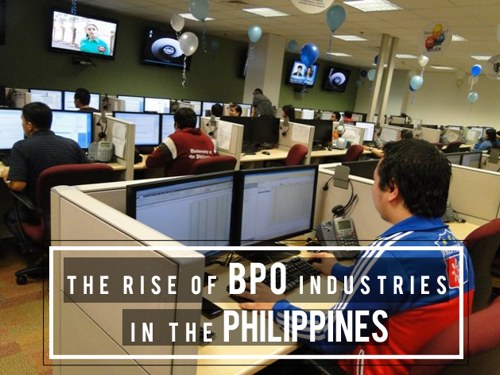The call center outsourcing in the Philippines has been growing steadily in the past few years. In fact, business processing outsourcing (BPO) is one of the successful and fastest growing sectors in the country. Today, the industry has more than 1 million directly employed employees.

Before it became one of the largest industries in the country, the industry go through a lot of challenges and developments that shaped its landscape and made it a prosperous industry today. Did you know that it takes just one single contact center that brought the BPO industry in the limelight?
Read on and let’s take a look at the important milestones in the BPO Industry.
The Early Stages of BPO Industry
- Frank Holz founded the Accenture Global Resource Center in 1992. It was a single contact center and the first contact center in the Philippines. This marked the beginning of the BPO industry in the country.
- In 1997, Sykes, a multinational company, began its operation in the Philippines with only 14 employees.
- In 1999, eTelecare, considered as the first call center in the country, was founded by Derek Holley and Jim Franke.
- In 2001, a US-based outsourcing center, PeopleSupport, moved and started their operations in the Philippines. This gave 8,400 jobs to many Filipinos.
- Convergys Corporation opened two call centers in the Philippines in 2003.
- In 2005, the Philippines earned 3% of the global BPO market. This was accounted for the 2.4% of the country’s gross domestic product (GDP).
- In 2006, ePLDT Ventus was leading the local BPO industry then. This increased the domestic economy of the Philippines by 5.4%
- The Philippines was proclaimed as the world’s BPO capital in 2010. During this time, there were already 525,000 employees in various call centers throughout the country. $8.9 billion in revenue was generated all throughout this period.
- In 2011, 638,000 Filipinos were employed in various call centers and $11 billion revenue was generated. This made the BPO industry as one of the biggest and fastest growing job providers.
Trends in the BPO Industry
- Better Information Security – the nature of work in most BPO industries is to handle confidential information of their clients. By this, various BPO company promises to give better and full security of their client’s information.
- Shifting from Hardware Storage to Cloud Servers – with the development of data storage and the growing of data and information, BPO companies are shifting from hardware storage to cloud servers. Cloud infrastructures, platforms, and software are now utilizes by various call centers.
Future Outlook
Currently, the BPO industry in the Philippines is experiencing an overall positive growth rate. Being the 39th largest economy in the world, Philippines continue to be a promising place for the BPO industry. In fact, the BPO industry is projected to produce 1.3M new jobs and expected to surpass the OFW remittances by 2017.
The growth of the BPO industry is not only seen in Manila, but with other cities as well. Several commercial hubs are now growing in Cebu City and will continue to expand in the coming years.
Recommended reading: Business Process Outsourcing: 7 Trends to Expect in 2018, which greatly talks about the upcoming trends in the BPO industry this year.
About the Author:
 Carl Padilla
Carl Padilla
A lad who enjoys foodies, technologies, lifestyle, and adventures. I write to inspire and encourage. I enjoy and live every moment because laughter is timeless, imagination has no age, and dreams are forever.
